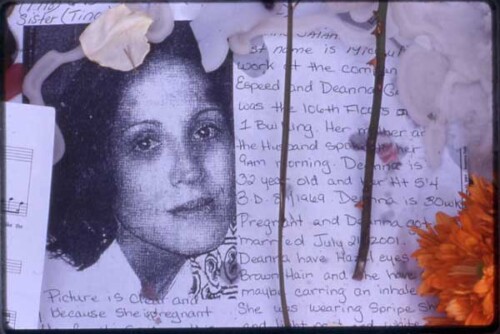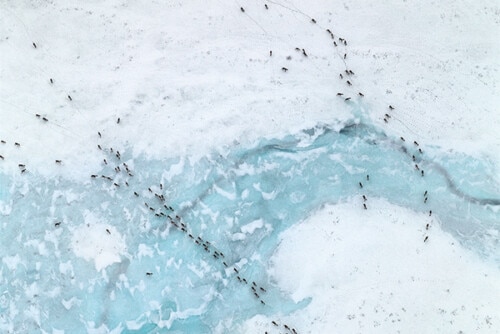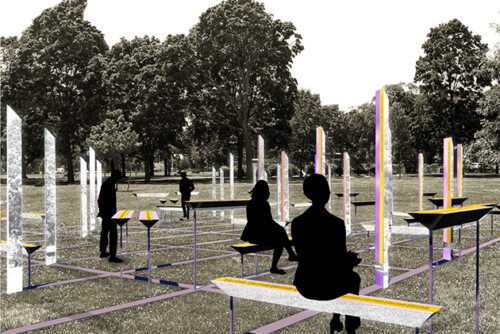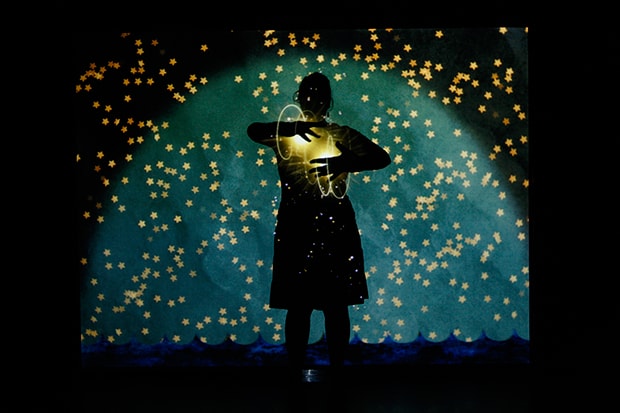Concluding Thoughts
I came to understand in Pristina that when the soul is traumatized it must be attended to with a sense of humanity; otherwise the inhumanity that underlies the trauma will take hold there and be repeated. This appeared to me to be the ultimate conflict I saw in Kosovo, the question of what will fill the place left by the tear in the soul of the people: will it be a nationalistic desire for revenge, or will it be a compassion for fellow human beings, in all our complexity and suffering.
February 25, 2000. Plane from Zurich to New York. Nearly home.
After the “older” group finished its performance, I couldn’t stop my tears. The image of the bride turned widow, the tender caring for the dead bridegroom. I wasn’t the only one crying. And after the applause died down, one of the older Albanian men in the room began almost shouting, “If there was a psychologist in this room I would ask him a question.” A few people knew I was a psychologist and said, “Steven! Ask Steven!”
He looked at me, his eyes red, his voiced choked. He spoke, and the translator translated: “I have seen now more than I ever thought I would see in my life. I went back to my village after the fighting stopped. The villagers dug up a mass grave and lined up 30 corpses. My neighbors. My friends. My cousin. I didn’t cry. I saw many terrible things, and I did not cry. But today I am crying. Why? Why? Before now I couldn’t cry. But today I am crying. Why – Why???” I was shaken up, and gave an answer that I can only hope was improved by the translator. I hope what the translator conveyed was something like, “Before, there were no tears because, before, tears were not enough to express what you were feeling. Before, there were no tears because, before, there was no use to which the tears could be put, and there was no place where the tears could be put to use, and there were no tools to put the tears to use. Here, together, we created the use, the place, and the tools, to use tears and art and laughter to make something of greater significance than grief alone.
The dangerous result of traumatic circumstances is not that trauma will result, but that the attempts to avoid trauma will be destructive – both to those who have been traumatized and to others when the traumatic reaction is discharged destructively.
The danger after traumatic circumstances is that there will not be trauma where trauma belongs, and the destructiveness inflicted in the traumatic circumstance will be perpetuated in the traumatic reaction. The theater work is one attempt to tolerate and creatively transform trauma in a public and artistic sphere, with the hope of securing an artistic and, perhaps, moral gain from the traumatic experience in the name of humanity and compassion. And, perhaps, there will be a side effect of healing as well.
Works Cited
Bergmann, Martin S., and M.E. Jucovy, eds. Generations of the Holocaust. New York: Columbia University Press, 1982.
Losi, Natale. “Beyond the Archives of Memory.” In Natale Losi, Luisa Passerini, and Sylvia Salvatici, eds., Archives of Memory: Supporting Traumatized Communities Through Narration and Remembrance, Psychosocial Notebook, Vol. 2, Geneva: IOM, 2001.
Nietzsche, Friedrich. Unfashionable Observations. Palo Alto, CA: Stanford University Press, 1995.
Orwell, George. 1984. New York: Signet, 1950.
Reisner, Steven. “Trauma: The Seductive Hypothesis.” Journal of the American Psychoanalytic Association 51 (2003): 381-414.




